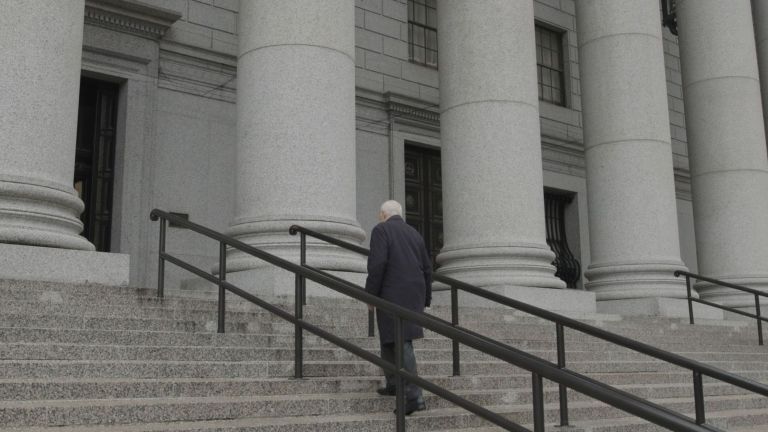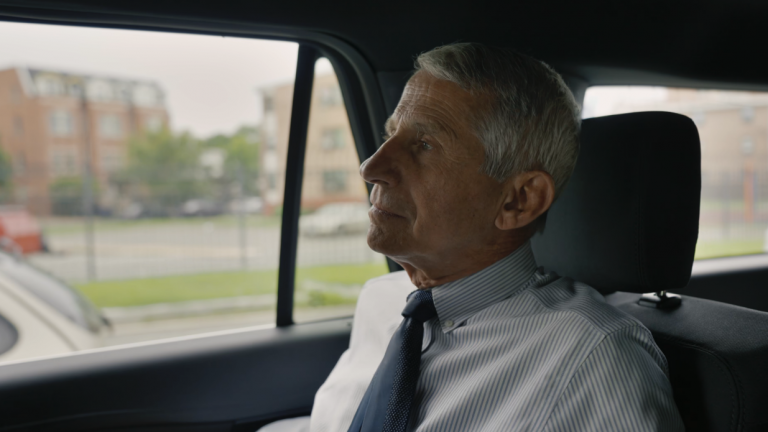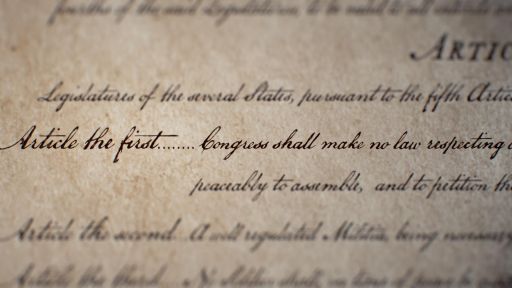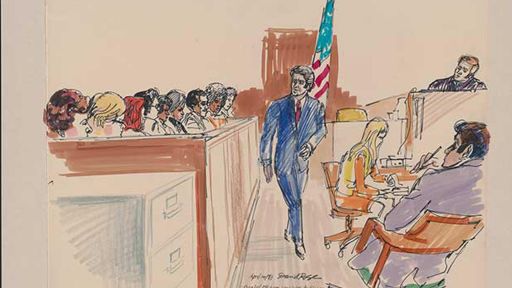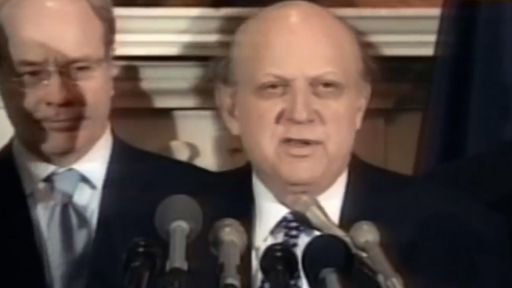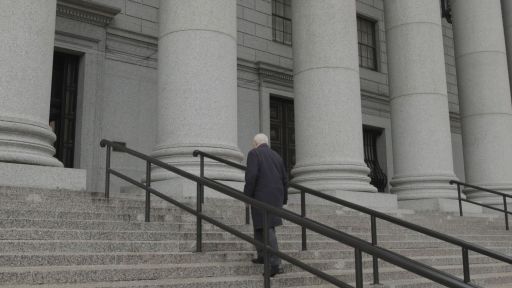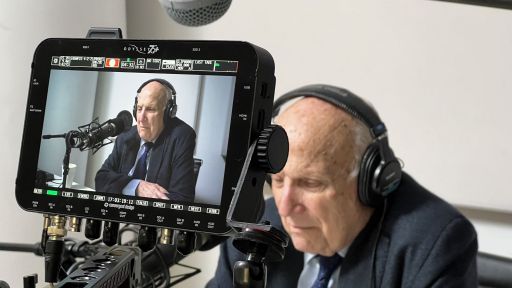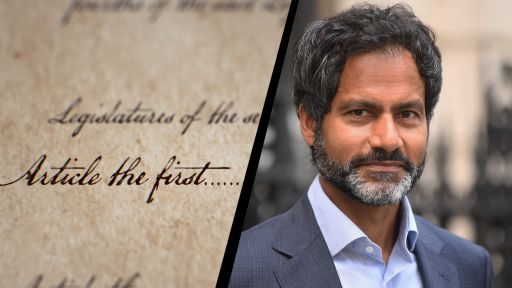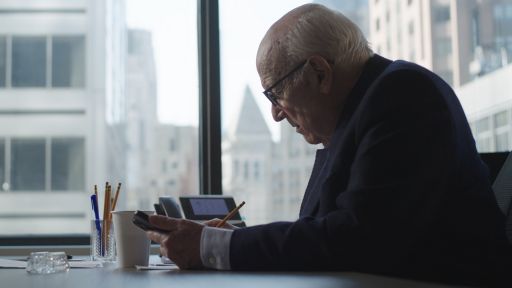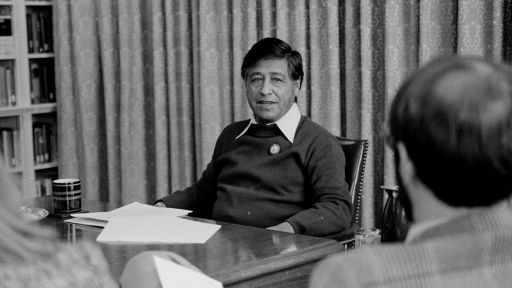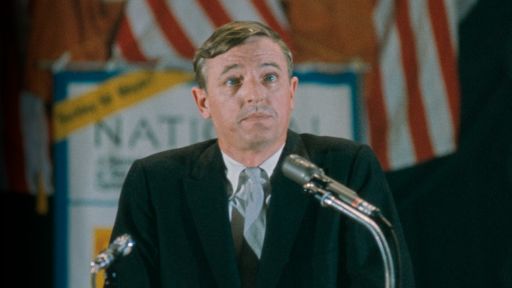Does the First Amendment bar government officials from browbeating social media platforms?
In this companion essay to Floyd Abrams: Speaking Freely, attorney Jameel Jaffer explores a pressing contemporary issue around First Amendment rights.
Over the course of many months, officials from the Biden White House and multiple federal agencies encouraged and pressured social media companies to take down posts about Covid-19 that they believed to be false and dangerous. This term, the Supreme Court will consider whether the Biden administration’s efforts violated the First Amendment. The Court’s resolution of the case, called Murthy v. Missouri, is likely to have broad implications for public discourse online, including in the months leading up to the presidential election later this year.
Most of the allegations at the center of the case relate to government officials’ communications with the platforms during the Biden administration’s first two years. The plaintiffs—two states and a group of social media users—allege that officials from the White House, the Centers for Disease Control, the Federal Bureau of Investigation and the Department of Homeland Security repeatedly pressed the platforms to remove or demote posts that contained what the government believed to be misinformation relating to the pandemic. 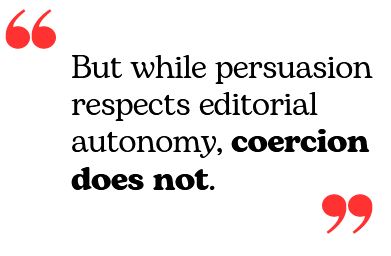 Government officials flagged posts they believed to be false, urged the platforms to stop amplifying posts that encouraged vaccine hesitancy and berated the platforms when they failed to remove purported misinformation quickly. In some instances, government officials suggested that the platforms might face consequences if they didn’t act, though the threats were usually veiled and unspecific. When the administration became frustrated that the platforms weren’t addressing misinformation more aggressively, President Biden declared on national television that the platforms’ indifference was “killing people.”
Government officials flagged posts they believed to be false, urged the platforms to stop amplifying posts that encouraged vaccine hesitancy and berated the platforms when they failed to remove purported misinformation quickly. In some instances, government officials suggested that the platforms might face consequences if they didn’t act, though the threats were usually veiled and unspecific. When the administration became frustrated that the platforms weren’t addressing misinformation more aggressively, President Biden declared on national television that the platforms’ indifference was “killing people.”
The plaintiffs’ argument that the Biden administration’s actions violated the First Amendment relies on Bantam Books, Inc. v. Sullivan, a case the Supreme Court decided 60 years ago. The case involved a legislative commission called the Rhode Island Commission to Encourage Morality in Youth, which made a practice of sending letters to book distributors urging them to take “objectionable” books out of circulation and warning them of possible prosecution under the obscenity laws. To follow up on the commission’s letters, police officers would visit the book distributors’ offices to inquire whether the letters had been acted upon.
The Supreme Court held that the commission’s actions were unconstitutional. Writing for the majority, Justice William Brennan observed that “the Commission deliberately set about to achieve the suppression of publications deemed ‘objectionable’ and succeeded in its aim.” The distributors’ compliance was “not voluntary,” he noted, and in his view the informal character of the commission’s actions did not render the actions any less coercive. He concluded that the commission’s letters amounted to a “system of prior administrative restraints”—but without any of the safeguards that might render such a system tolerable under the First Amendment.
Justice Brennan’s opinion in Bantam Books is terse and not entirely satisfying, but insofar as the opinion draws a line between persuasion, on one hand, and coercion, on the other, it makes sense. A democratically representative government has a legitimate role to play as a participant in public discourse, including by endeavoring to persuade private speakers and editors (like social media companies) to consider the broader implications of their speech and editorial decisions. It would be odd, to say the least, if specialized government agencies like the CDC couldn’t share their research and recommendations with the platforms whose practices are so consequential for public health. The First Amendment shouldn’t be an obstacle to government efforts to inform and influence speech intermediaries’ decisions and practices, so long as government officials operate in a way that respects those intermediaries’ editorial autonomy.
But while persuasion respects editorial autonomy, coercion does not. When government officials strongarm speech intermediaries into taking speech down (or, for that matter, leaving it up), they aren’t informing those intermediaries’ editorial judgments, but overriding them. Justice Brennan was right to hold that this is a practice that the First Amendment cannot tolerate—not only because the practice infringes the expressive rights of intermediaries themselves but because it infringes the rights of the people whose speech the intermediaries host. Justice Brennan was focused on bookstores and readers, but the same concerns arise if we turn our attention to platforms and their users, even if platforms are different from bookstores in important ways.
The specific question the Court will address in Murthy is whether the Biden administration’s interactions with the platforms were constitutionally permissible. The Knight First Amendment Institute at Columbia University, which I direct, has filed a brief arguing that some of these interactions may have crossed the constitutional line. But whatever the Court says about this question, the Court should reaffirm the rule that Justice Brennan drew in Bantam Books—the line between persuasion and coercion. In an era in which so much of the speech that is important to our democracy is mediated by private platforms, that principle is essential to the integrity of free speech online.
The government must be permitted to participate in public discourse—but when it attempts to influence speech intermediaries, it must do so with arguments, and not with threats.


